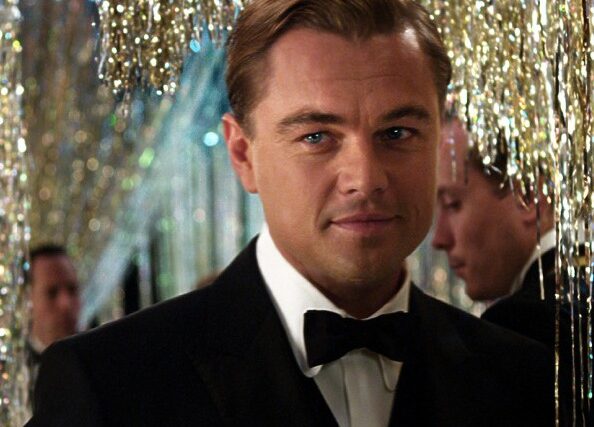By Eftychia Antonopoulou,
Amidst the glamour, the magnificence and the lavishness of the Roaring Twenties, Jay Gatsby assumes his form through Scott Fitzgerald’s writing, as he comes to encapsulate greatness. Part of the lost generation, a man who strives to find something in his world to hold onto, a person who acquires everything, and yet ends up with nothing, Jay Gatsby is, as stated by the very title of the novel, great. Yet, how is it that a man so torn and so incredibly lost, can still be called “The Great Gatsby”? By delving into the complexity of not only his character, but also of the society in which he lived, one can realize that after all, perhaps, Gatsby really was great.
Greatness can be defined as the quality of been distinguished, eminent, impactful. And Gatsby was all the above. First and foremost, he was blessed with an unparalleled ambition, that drove him to strive socially, and leave his own mark on the glamorous stage of the Roaring Twenties. Starting from a background that neither supported him nor benefited him, he relentlessly pursued wealth and status, having realized that those two were the only trademarks for greatness in the world he lived. Gatsby saw the green light, he recognized the American Dream, he sought out that which called out to him, and he procured it. He made himself known to all of New York. However improper the means of acquiring his wealth were, he managed to become a literal legend, a man whose name can be correlated to myths and stories similar to those of history. Surely, it takes a certain amount of greatness for someone to achieve all that, having started from nothing.
However, it is not just Gatsby’s ambition that renders him great, for it is also his charismatic essence and its magnetism that places him in the pantheon of characters searching for the American Dream. Specifically, Gatsby is undeniably a charming man who successfully enchants the people around him. The narrator of the story, Nick Carraway, introduces Gatsby to the reader by writing that “there was something gorgeous about him, some heightened sensitivity to the promises of life, as if he were related to one of those intricate machines that register earthquakes ten thousand miles away”. It is thus made evident from the very beginning of the novel that Gatsby is not just a rich man, but also a captivating spirit. Nick is obviously fascinated and intrigued by this wonder of a man. Even though Nick, being the drifter that he is, has met many people, it is no coincidence that Gatsby is the person who in the end proves to have irrevocably changed the narrator’s life. Certainly, Gatsby possesses a unique ability to draw others to him, to distinguish from the rest, and to impact those around him, to an extent which alludes to greatness.

On the contrary, some might argue that the aspects of Gatsby’s personality that make him so great belong to a façade – an illusion fabricated by him. Not even his name is real, as he appears to have changed “Gatz” into Gatsby. Nonetheless, one ought to evaluate Gatsby’s true essence, while also taking into consideration the state of society during the twenties. Amidst such a cynical and superficial time period, where people drifted as feathers from one place to another, from one person to another, Gatsby remained a romantic idealist. Even though he bases his life on a fictional reality, he never fails to embody this one, non-fictional truth: that a man, however unprivileged, however broken or corrupt, can always reinvent himself and pursue his dreams. Some may call him superficial and unoriginal, but the unyielding devotion he has for Daisy, flawed though it may be, differentiates him from the mere materialists of his time, and symbolizes his unwavering dedication to the very few people he cares about.
Ultimately, Jay Gatsby may be a flawed and highly imperfect character, but that is what makes him human, that is what makes him great. We ought to recognize the distinction between excellence and greatness. For he is certainly not excellent once the curtain of those lavish parties closes, once the sun goes up and the music stops: Gatsby stands as a tragic and distorted man. Yet, he still manages to leave an indelible mark on the people he meets, as he assumes his well-earnt title as “The Great Gatsby”.
Reference
- Fitzgerald, F. Scott (Francis Scott). The Great Gatsby. Penguin Books Ltd. UK. 1925.




